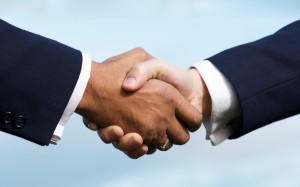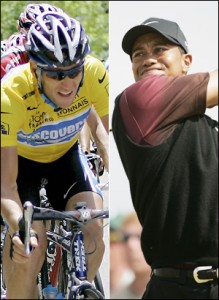 By Scott T. Allison and George R. Goethals
By Scott T. Allison and George R. Goethals
“The price of greatness is responsibility.” – Winston Churchill
Recently we posted a blog entry that posed the question of whether we expect too much from our heroes. With so many heroes falling from grace in the past few years, we suggested the possibility that we hold them to too high a standard. We also offered some reasons why we might expect more virtuous behavior from heroes than we do from the average non-hero.
One framework for understanding heroism involves looking at heroes and recipients of heroism as though they were two parties honoring a contractual arrangement. This mental contract we have with our heroes outlines an equitable “exchange” between the hero and their beneficiaries.
Thus, whenever we assign the “hero” label to someone, we mentally enter into an implicit exchange relationship with them. The exchange relationship carries with it an unspoken agreement that we make with heroes, and it goes something like this: We agree to give heroes our adulation and support, but in return they must maintain an idealized image of human greatness.
Our bargain with heroes can be described this way: “You [the hero] reflect what we want to see in ourselves. But if you reflect the reality of us as people and a society, then you’re just one  of us after all. And therefore, you’re no more special than we are and you have to come down from your pedestal and stand in the muck with the rest of us.”
of us after all. And therefore, you’re no more special than we are and you have to come down from your pedestal and stand in the muck with the rest of us.”
If a hero misbehaves, we consider it a breech of contract and we withdraw our admiration and support. We may also show considerable anger about the contract violation — witness the outrage directed toward Tiger Woods that still lingers to this day. A broken agreement can turn a hero into a villain rather quickly and easily. Prominent examples, besides Tiger, include Kevin Spacey, Lance Armstrong, and Joe Paterno.
The idea that we enter into implicit agreements with the successful and powerful is not a new one. In 2005, psychologist David Messick published an article in which he proposed that an implicit contract exists between leaders and followers. The contract states that we’ll let leaders lead us if they provide us with a vision, a sense of pride in the group, and group security and protection. In return, we’ll give leaders our loyalty, effort, and support.
We may have a similar implied agreement with celebrities and the rich. The terms of the unspoken agreement may be that we’ll let famous celebrities have their fame and  wealth, and we may even become their fans, but only as long as they earn their affluence honestly, pay a higher percentage of taxes, behave well, and don’t abuse their privileged status.
wealth, and we may even become their fans, but only as long as they earn their affluence honestly, pay a higher percentage of taxes, behave well, and don’t abuse their privileged status.
What’s most interesting about these implicit agreements is that highly successful people are either not aware of them, or they find it extremely difficult to honor them. Those of us among the lowly masses seem to be much more sensitized to these informal contracts with heroes. Maybe this is because we’d much rather be a hero than a hero would want to be us. If we’re going to put them up on an enviable pedestal, the least they can do is follow basic rules of common decency.
Sometimes, after they’ve fallen, former heroes know they violated the contract. Tiger Woods admitted as much. “I knew my actions were wrong but I convinced myself that normal rules did not apply,” he said. “I ran straight through the boundaries that a married  couple should live by – I thought I could get away with everything I wanted to. I felt that I had worked hard my entire life and deserved to enjoy all the temptations around me. I felt I was entitled.”
couple should live by – I thought I could get away with everything I wanted to. I felt that I had worked hard my entire life and deserved to enjoy all the temptations around me. I felt I was entitled.”
Tiger’s confession is consistent with the results of several psychological studies showing that the more power and success that people enjoy, the more they believe they don’t need to play by the same rules as the rest of us. And yet it is when someone becomes a hero that we most expect them to play by those rules. For this reason, maintaining one’s heroic status may be just as challenging as becoming a hero in the first place. Ironically, one of the most common ways to become a villain is to become a hero first.
All because of the deal we strike with our heroes.
– – – – – – –